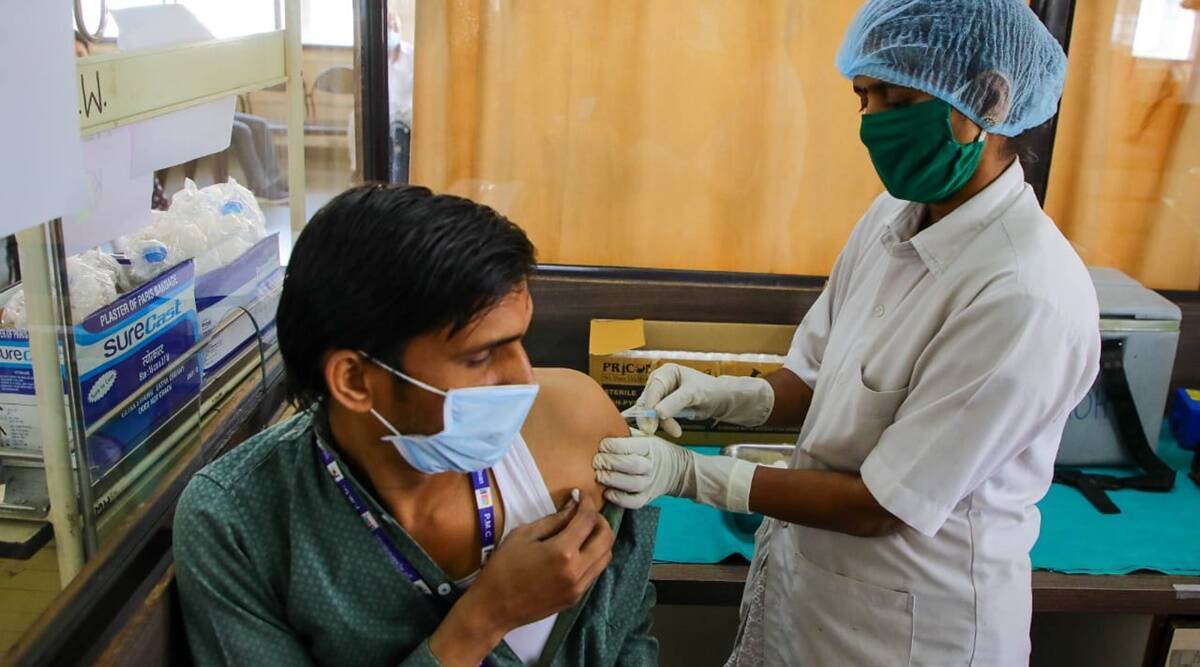As India closes in on 1 crore vaccinations against the novel coronavirus disease, data from one month of the exercise show an uneven pattern of inoculation – several states and Union Territories that have robust healthcare infrastructure and were expected to do well on vaccine coverage have, in fact, performed poorly.
Seven states and UTs have administered the first dose of the vaccine to less than 50 per cent of their target healthcare workers, according to Union Health Ministry data until Thursday.

The only large state in this list of laggards is Tamil Nadu. Delhi and Punjab, too, are yet to reach 50 per cent vaccine coverage among target beneficiaries.
As a whole, and in absolute numbers, India – which began its mass inoculation drive on January 16 – is currently behind only the US and the UK in delivering the shots to its people.
Assembly election-bound Tamil Nadu had set itself a target of vaccinating 5,32,605 healthcare workers in government and private sectors. But as of February 18, the state had achieved only 47.1 per cent first dose coverage of healthcare workers.
Delhi, which had targeted approximately 2.78 lakh beneficiaries, has administered the first dose to only 44.8 per cent of that number. The corresponding figures for Punjab are 1.97 lakh and 38.1 per cent.
Others in less-than-50-per cent coverage list are Ladakh (47.4 per cent), Nagaland (36.7 per cent), Chandigarh (35.9 per cent), and Puducherry (27.5 per cent).
Story continues below this ad
Government sources who are part of the team monitoring the vaccination drive said coverage in these states and UTs remained poor despite multiple meetings. A senior Health Ministry official described the response of these states and UTs as “incompetent”.
“Chhattisgarh, which does not have a robust health infrastructure like in Tamil Nadu, Delhi, or Punjab, has a vaccine coverage of close to 78 per cent,” this official said. “We have analysed the reasons for poor coverage. It is purely incompetence of the state governments…. States that are doing well have planned the vaccination sessions efficiently; those showing poor coverage are not doing that.”
Vaccination in Tamil Nadu has been moving slowly – on February 3, 23.70 per cent of healthcare workers had received the first shot; this number rose to 30.4 per cent by February 10.
Dr J A Jayalal, who heads the Indian Medical Association (IMA) and practises in Tamil Nadu, said the low coverage in the state is “surprising”. “There is no vaccine hesitancy. However, there is a segment of healthcare workers not taking (the vaccine): the nursing professionals. The percentage of doctors is well above the expected coverage.”
Story continues below this ad
He said low coverage is being reported in the nursing community in the government sector. “We are consciously working on increasing the numbers among the nursing community,” Dr Jayalal said.
In Punjab, IMA state president Dr Kuldeep Arora cited two broads reasons for the low coverage: “The drive should have been very successful in Punjab. But in my own hospital, 250 registered for vaccination and everybody received a message; (of that), only 10-15 went for vaccination. First, there is a lack of motivation, as there very few people are concerned about another possible wave. Second, in Punjab, there are apprehensions about an adverse reaction.”
Dr Arora said efforts have been taken to increase the coverage, but the increase in number has only been confined to doctors. “We have hosted multiple Zoom meetings, but it was confined to medicos. So if you see the coverage, only doctors are getting vaccinated. Other healthcare workers like nurses and other staff are very reluctant,” Dr Arora said.
Dr Arora, however, said Punjab will witness a surge in vaccination once it is opened up for the general public. “There are many people who know about the benefits of the vaccine. We are receiving queries from the elderly population…. Once we open for the general public, there will be an increase in overall coverage in the state.”
Story continues below this ad
Dr Arun Gupta, who heads the Delhi Medical Council, said the national capital reports 100-per cent coverage in private hospitals but has a dismal overall coverage. “Initially there was a little hesitancy, but now that is not an issue. In Delhi’s private hospitals, we are seeing almost 100 percent coverage. The difference is planning. There are no administrative issues in private hospitals,” he said.
Dr Gupta put administrative glitches as the reason behind the low coverage. “For instance, I had addressed the entire staff of two government hospitals. We found that they were not tech-savvy. We addressed that issue. The next day the coverage in that hospital was 100 per cent. In another case, a nursing home had initially registered 84 persons — and 47 got vaccinated in another session site and 10 refused. After a week, the nursing was designated as a session site, and the remaining wanted to get vaccinated but they continued to face some administrative issues,” Gupta said.









